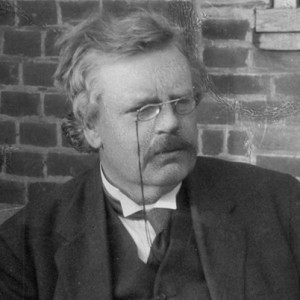Sometimes we achieve helpful clarity by recognizing important distinctions between similar but different concepts. In fact, some of our most popular blog posts have been about distinctions. Bob Moffitt’s post Reconciliation vs. Restoration has generated lots of traffic. And our most popular post, by far, is School vs. Education.
To follow this trend, here’s a look at two more distinctions: evangelism vs. discipleship, and discipling individuals vs. discipling nations.
Evangelism vs. discipleship
In John 8:31-32 Jesus differentiates between believers and disciples: “So Jesus said to the Jews who had believed him, ‘If you abide in my word, you are truly my disciples, and you will know the truth, and the truth will set you free.’”
Jesus is speaking to Jews who had responded favorably to His message. They had been converted from unbelief to faith. But Jesus makes a further distinction, that between believer and disciple.
The distinction is simple. In modern parlance, a believer is someone who professes faith in Jesus Christ. Perhaps they responded to an evangelistic appeal, or prayed the “sinner’s prayer” with a friend or family member. In any case, they have passed from a non-believer to a believer in Christ. But Jesus indicates there is something more: he wants believers to become disciples. He wants more than a confession of faith; He wants people to follow that confession with obedience.
What obedience? Abiding in His word. The Greek term translated abide is the verb menō, meaning “continuing in, living in, residing in, remaining in, staying in” Jesus’ word. Note this is a verb, an action. It implies continuous action, making your home in the word of God. This is an ongoing process that assures growth. It is the means of becoming a disciple of the Master. While our justification comes by confession of faith, our sanctification is a continued act of obedience, living in the word of God.
And what are the consequences of abiding in the word of God? Freedom, the freedom that comes from knowing the truth.
Discipling individuals vs. discipling nations
Some churches and evangelistic organizations recognize the need to go beyond evangelism to discipleship, helping Christians grow in their faith. These groups are to be commended. They offer various discipleship programs in what are often called the “spiritual disciplines”: praying, reading scripture, worshipping, fellowshipping with other believers, and sharing their faith. These are essential practices for establishing a well-grounded and well-rounded life in Christ.
But many people reduce the Christian life to practicing spiritual disciplines. Many Christians read Matthew 28:18-20 as a mandate to baptize new believers and teach spiritual disciplines. The Great Commission includes both, but to stop there is to miss the larger point. Jesus sends us to disciple nations, not merely individuals or even individuals from every nation.
There is both a personal and a public application of the gospel. This is why the Great Commission in Matthew refers to the public level of discipleship, the discipling of nations. To disciple nations is to disciple at the level of culture. In other words, to work to bring all the dimensions of public life into obedience to the Lordship of Christ: education, entertainment, government, the arts, commerce, international affairs, the sciences.

And Jesus does not simply call us to make progress in these efforts. He calls us to nothing less than reformation, reforming what is deformed. In his August 2011 letter to Mars Hill Audio subscribers, Ken Meyers refers to G.K. Chesterton on this subject.
Chesterton on reform
In G.K. Chesterton’s Orthodoxy, he explains why he thinks the terms “evolution” or “progress” are both inadequate terms to ‘describe the dynamic’ of cultural change Christians wish to promote. “I prefer to call it reform,” Chesterton asserted. “For reform implies form. It implies that we are trying to shape the world in a particular image; to make it something that we already see in our minds.”
To work for cultural reform requires that we recognize those features of modern life that are deformed. The instances and causes of cultural deformity can only be recognized when we can describe and outline the forms that a successful reformation would encourage and sustain. Such forms—fitting and adequate expressions of the kinds of creatures we were fashioned to be, the kind of world we inhabit, and the kind of vocations we have under God—should characterize the lives of believers and their communities. They should inform the life of the Church: in its worship, in fellowship, in the ordering of families, in the pursuit of our vocations…
For more on this see Ken Meyers’s letter to his subscribers. It is well worth the read.
In another place, Meyers writes about what discipleship on the level of culture means:
 Discipleship is not engaging with another culture to present a small set of new propositions. Rather, discipleship is a work of alternative enculturation – to present a new way to understand life and the world in which we live, that is, a new way to understand ‘what is real.’ And this new way of understanding life is incarnated in alternative cultural forms that are sustained across generations and, when possible, shared with our neighbors.
Discipleship is not engaging with another culture to present a small set of new propositions. Rather, discipleship is a work of alternative enculturation – to present a new way to understand life and the world in which we live, that is, a new way to understand ‘what is real.’ And this new way of understanding life is incarnated in alternative cultural forms that are sustained across generations and, when possible, shared with our neighbors.
One further example
There’s at least one more way discipling moves beyond evangelism, and beyond teaching individuals to practice spiritual disiplines. Leslie Newbigin, missionary, missiologist and theologian, in his book Foolishness to the Greeks, puts it this way:
A preaching of the gospel that calls men and women to accept Jesus as their Savior but does not make it clear that discipleship means a commitment to a vision of society radically different from that which controls our public life today must be condemned as false.
Evangelism, and discipling in the spiritual disciplines, are both essential. But they are not the equivalent of the Great Commission to disciple nations. We have done evangelism well. Some have discipled individuals well. But a vision to disciple nations at the level of culture has been mostly lost. Let us, as Christians early in the 21st century, return to our great heritage, a vision of discipling nations.
- Darrow Miller
NOTE: For more on this subject, go here to preorder the new edition of Darrow’ s flagship book, Discipling Nations: The Power of Truth to Transform Cultures.






